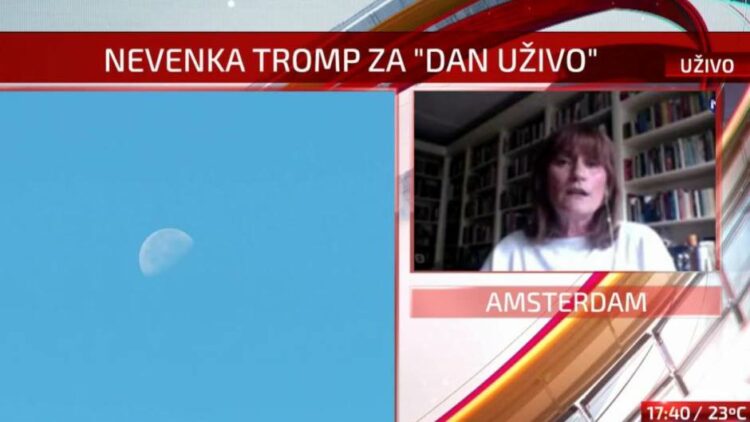
Serbia had the most interest in influencing the work of the International Criminal Tribunal for the former Yugoslavia (ICTY) in order to minimise its role in the crimes committed during the 1992-1995 war in Bosnia, Nevenka Tromp, was a member of the Leadership Research Team at the Prosecutor's Office of the Tribunal, told N1 on Tuesday.
Tromp spoke to N1 in light of the appeal hearing of former Bosnian Serb general Ratko Mladic, who was sentenced to life in prison by the ICTY for genocide and crimes against humanity committed during the Bosnian war.
She said that Serbia has “from the very beginning been trying to find a way to influence the work of the Tribunal.”
“Serbia had the opportunity to influence the court with its approach and its witnesses. They hid the documents from the Supreme Defence Council in the case of (former Serbian President Slobodan) Milosevic, they had an unbelievable motivation to politicise the tribunal and influence its work and managed to do so,” she said.
As for the appeal hearing of Ratko Mladic, Tromp said she does not expect that it would produce a lot of changes but that it is more of an issue that “concerns the legal interpretation of the ruling and parts of it.”
“The more time passes from the moment the crime is committed, the more the interest of the entire world for the case is diluted. It’s a given that now, 25 years after the Srebrenica genocide, there is no critical mass with high expectations,” she said.
Tromp said that the Tribunal did not manage to retain its authority.
“Since the tribunal was established, it faced enormous expectations. When it was established, the whole world was appalled by the way Bosniaks were killed in Bosnia and Herzegovina and military intervention was sought,” she said.
“The international community, which was involved in many ways, did not want a military intervention to prevent the crime,” she explained, adding that the Tribunal was created, it was not expected that it will come to life the way it did.
“It was a combination of circumstances, it opened up the possibility of filing an indictment and a phenomenal team from Bosnia and Herzegovina came forward, which (Bosnia’s first President) Alija Izetbegovic tasked with investigating (the crimes). They submitted incredible things and the chief prosecutor was the right person at the right place and there was a historic case at the Tribunal against Dusko Tadic,” she explained.




